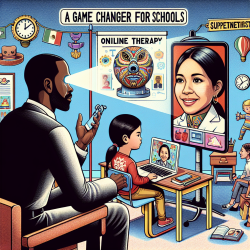Introduction
Speech-language pathologists (SLPs) play a vital role in the educational landscape, especially in addressing communication disorders among students. As a Special Education Director, understanding the essential functions of SLPs is crucial for ensuring that students receive the support they need. This blog will explore the core competencies required for speech-language pathologists, as outlined by professional guidelines and educational standards.
Physical Abilities
SLPs must possess certain physical abilities to effectively perform their duties. These include:
- Participating in professional responsibilities for extended periods, typically up to four-hour blocks with occasional breaks.
- Moving independently within the work setting and maintaining personal hygiene.
- Manipulating screening and diagnostic materials to complete evaluations accurately.
- Implementing treatment plans using appropriate materials and instrumentation while collecting data.
- Ensuring a safe environment by responding quickly to emergencies and applying universal precautions.
- Monitoring client responses and making accurate judgments about speech and acoustic signals.
Behavioral and Social Attributes
Effective communication and interpersonal skills are essential for SLPs. Key attributes include:
- Maintaining emotional and mental health to use intellectual abilities effectively and develop professional relationships.
- Demonstrating composure and emotional stability in demanding situations.
- Adapting to changing environments and communicating effectively with diverse individuals.
- Understanding and respecting supervisory authority and maintaining professional behavior, including punctuality and attendance.
- Exhibiting compassion, integrity, and motivation in delivering professional responsibilities.
- Collaborating with other professionals to enhance service delivery.
Intellectual Abilities
SLPs must demonstrate strong intellectual abilities to manage clinical and academic tasks. These include:
- Learning and assimilating professional information, including reading and comprehending literature and reports.
- Solving clinical problems through critical analysis and synthesizing information from various sources.
- Writing discipline-specific papers and clinical reports in English.
- Speaking Standard American English intelligibly and modeling English phonemes.
- Analyzing, synthesizing, and interpreting ideas in academic and clinical settings.
- Maintaining attention and concentration for extended periods to complete clinical activities.
- Scheduling and prioritizing activities while providing timely documentation.
- Complying with administrative, legal, and regulatory policies.
Conclusion
Understanding the essential functions of speech-language pathologists is critical for fostering a supportive educational environment. By ensuring that SLPs possess the necessary physical, behavioral, and intellectual abilities, schools can provide effective communication support to students. For more detailed information on the functions of speech-language pathologists, please follow this link.










